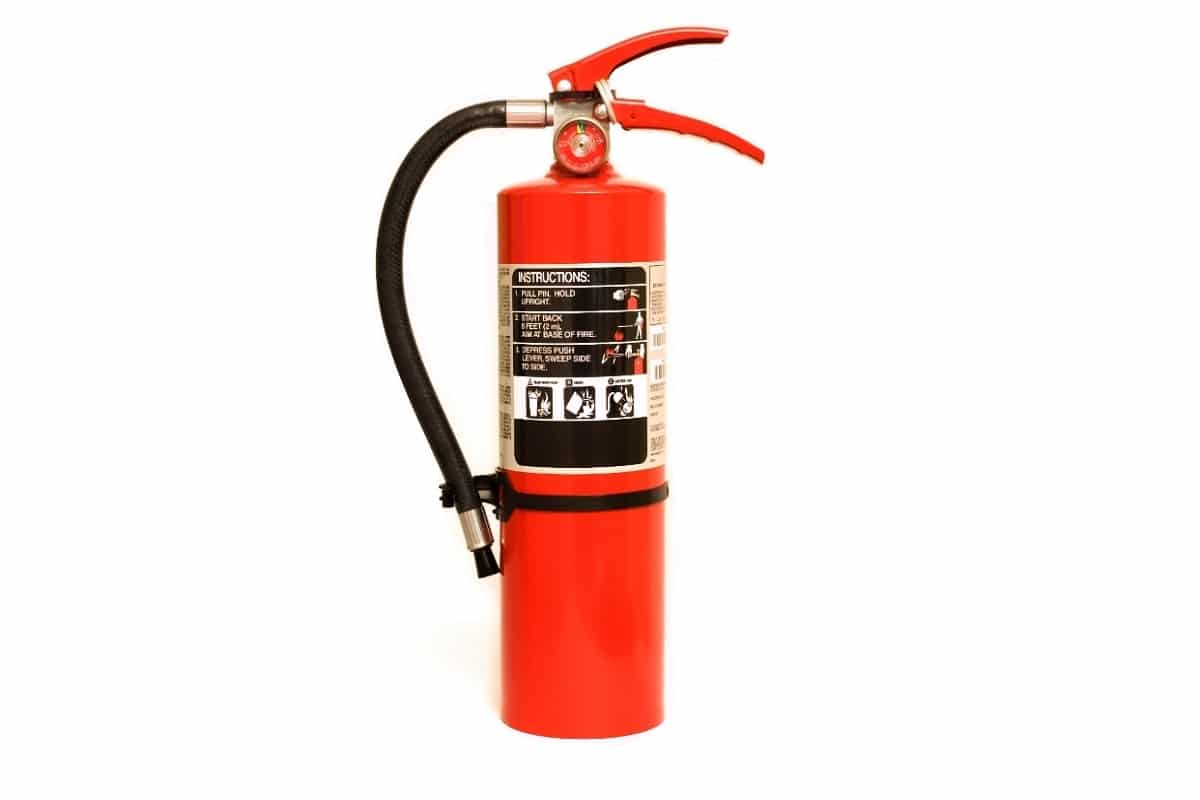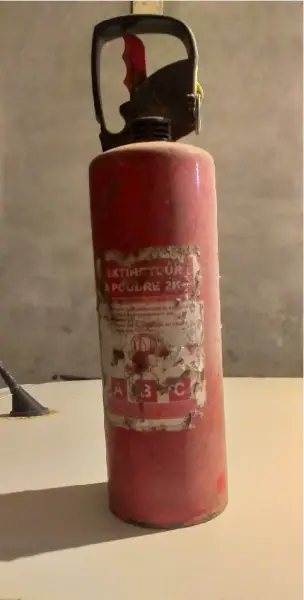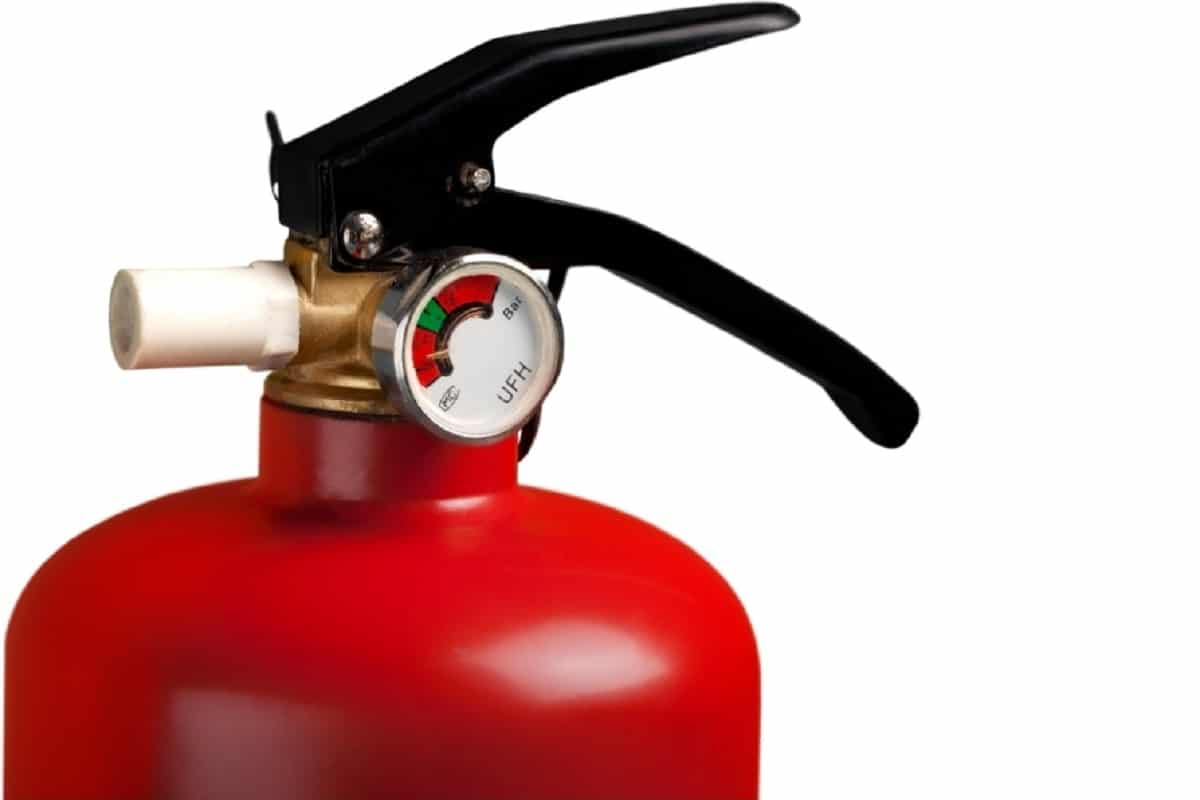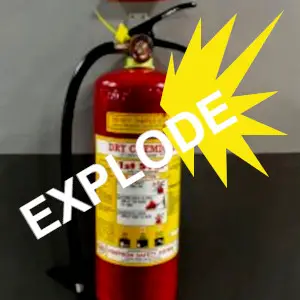Fire extinguishers are made to help put fires out and protect anyone nearby from any harm. However, fire extinguishers can also cause injury or physical damage under some circumstances. One is when a fire extinguisher explodes. But how does this happen?
Defective Fire Extinguishers
Defective, rarely inspected, and uncharged fire extinguishers can render them useless in an emergency. Properly inspecting your fire extinguishers is very important for them to stay effective.
Defective fire extinguishers are a particular problem when they occur. This means they fail to activate when you need them during an emergency. Defective fire extinguishers that arrive from the manufacturer are rare, but they can happen. So, to best protect against fires, have more than one fire extinguisher accessible in case one fails.
To make sure your fire extinguishers are up to code and working at their best, answer the following questions:
- Are you familiar with all your fire extinguisher locations?
- Have you checked the pressure gauges once per month?
- Are there any old fire extinguishers that might need replacing?
- Are there any spent fire extinguishers that need to be recharged?
Making sure your fire extinguishers are functional is necessary to be prepared for a fire emergency. The last thing you want to happen is to try to use a fire extinguisher only to find out it cannot function properly in a time of need. You can set up a walk-around plan to check all your extinguishers once per month on a certain date. You can also obtain or make a paper diagram of your home or office with these locations marked.

Damaged Fire Extinguishers
Fire extinguishers can become damaged in several ways. This can affect their performance when being used to fight a fire. This can also render them useless or even at risk of explosion.
Here are ways a fire extinguisher can become damaged:
- Dropping them (the biggest risk factor)
- Driving over them with a car
- Falling off of a vehicle
- Falling off a wall mount
- Damage during delivery from the manufacturer
- Hit with debris or equipment while moving around them (metal poles, wood boards, furniture, boxes, appliances, etc.)
If a fire extinguisher is dropped or knocked off a wall mount, make sure to inspect it and replace it if possible.
There are other ways to render a fire extinguisher less capable. For instance, blockage by the extinguishing agent inside hoses, springs, gaskets, and O-rings after being partially used can make it less effective.
Fire extinguishers can also simply lose pressure over time as they age. Even a pressure gauge that shows the extinguisher still has enough pressure may still need maintenance.
Improperly Stored Fire Extinguishers

If you do not store your extinguisher properly, it can become damaged and lead to a dangerous leak or explosion. This can be caused by impacts from storing the extinguisher on the floor in a high-traffic or high-impact area. Or it can be caused by the storage location becoming too hot, too cold or too wet.
Here are some highly-rated fire extinguisher mounts if you need one:
Reluen Universal Fire Extinguisher Wall Mount for 15 to 20 lb Extinguishers
First Alert Mounting Bracket for 2 lb for Fire Extinguishers
Amerex/Kidde Wall Mount for 2.5 to 5 lb Fire Extinguishers
As an Amazon Associate, SelectSafety earns commissions from qualifying purchases made through links in this post.
Never Store Extinguishers Near Heat Sources
Storing fire extinguishers too close to stoves, fireplaces, or power generators can expose them to too much heat. The recommended temperature ranges for storing fire extinguishers is between 40 and 120 degrees Fahrenheit. If left exposed to high temperatures, the valve, tank, or hose could be damaged.
Kitchen fires are the most common fire types in the home, so keeping a fire extinguisher nearby behind a door is recommended. But make sure to not place it too close to the stove or oven.
Keeping a fire extinguisher mounted or sitting near a door in the garage is also a good place. Bedrooms are prime locations as well because fires can happen unexpectedly at night. Make sure to not place the extinguisher too close to a water heater that has a gas flame.
What Causes Fire Extinguishers To Explode?
Any sealed container under high enough pressure and exposed to intense heat can explode. The more rigid the container, the greater the chances of it bursting. Fire extinguishers are designed to handle the heat, so most likely will not explode under normal fire conditions. They are also built with safety devices included.
The Container and Valve
The extinguisher valve has a rupture disc near the red plastic tether on the back.

This disc is designed to fail at a lower pressure than the cylinder. Small holes drilled through the side of the plugs hex part allow the gas pressure to vent in an event of a failure. The extinguisher will eventually run out of pressure, preventing an explosion.
Safety valves, or ruptured discs, are included with nearly all tanks that hold pressure. If a fire extinguisher gets under extreme heat, it may only melt the plastic valves allowing the gas to escape, and not explode.
“Antique” fire extinguishers may have rusted or cracked components that could fail or explode, so it may be best to just replace them with a new one.
Can a Fire Extinguisher Explode From Heat?
The heat will most likely not cause a fire extinguisher to explode, but it can damage it and cause it to malfunction. The safety release valve will let them discharge without exploding if the internal PSI increases too much. Storing a fire extinguisher inside a hot car (120 degrees and up) will not cause the safety valve to release.
Can a Fire Extinguisher Explode From Freezing?
Freezing does not cause fire extinguishers to explode, but it can cause the canister to crack, or just render it useless because of the frozen contents.
Chemical fire extinguishers are not guaranteed to resist freezing because they may contain water solutions that cannot be enhanced by anti-freezing ingredients. This means you must not allow an extinguisher to sit in freezing temperatures for several hours or days. The water inside the container will expand and put it under strain. The seam of the container could weaken and burst if the freezing continues too long. This is why fire extinguishers come with a warning “protect from freezing” on them.
If you live in a cold climate, do not store your fire extinguishers in uninsulated areas, such as basements, sheds, or garages.
Anti-freezing Ingredients in Fire Extinguishers Can Fail
Anti-freezing ingredients can actually cause the fire extinguisher to fail because it can eat away at the shell and cause leakage over time. If the fire extinguisher is inverted at any point, it could burst due to the added pressure on the weakened point. This restates the fact that fire extinguishers must not be used if they are beyond the 8-12 year lifespan.
Overcharged Fire Extinguishers
Re-charging a fire extinguisher could result in overcharging. This could make it more susceptible to bursting or failing when dropped. Extreme events could put abnormal pressure on the extinguisher beyond factory limits. Always follow the guidelines on the extinguisher as to what amount of recharging is necessary. If you do not know how much, consult a fire expert or the manufacturer’s website.
Fire Extinguishers of All Sizes Can Explode
Fire extinguishers of all sizes share a common trait, that they are under considerable stored pressure. Damaged fire extinguishers can become explosion risks at any moment. Manufacturers set maximum limits on what fire extinguishers can handle that exceed what normal use brings. However, this does not necessarily apply to extinguishers that have been abused or damaged in an extreme way.
For instance, a fire extinguisher dropped of thrown from a vehicle can hit the ground and burst because fire extinguishers are under pressure. It is easy to forget this when handling them normally.
The larger fire extinguishers will produce a larger explosion if this happens. There is simply more powder, chemicals, or fluid that is stored under pressure that can burst outwards to produce collateral damage. Especially fire extinguishers under more PSI pressure inside the tank.
Affects of Fire Extinguisher Explosions
If a fire extinguisher explodes, it most likely will be a large and loud burst. Parts of the extinguisher could fly off hitting anyone nearby. Mostly, fire extinguishers do not explode, but instead, leak chemicals that can be harmful to anyone in the home.
Remember that you should not just buy the cheapest fire extinguisher that you can find because this may not be of the highest quality nor the right one for the job. Take your time and browse through the internet before purchasing one so you can find the best deal on a good quality extinguisher. In the long run, this will be something worth having and will make your home safer and less likely to have to experience a fire extinguisher explode.
Can a Fire Extinguisher Explode From Being Dropped?
Yes, if dropped too far a fire extinguisher can burst potentially causing damage to anyone nearby. Do not throw or toss a fire extinguisher to anyone because they can drop it or miss it. If a fire extinguisher has been dropped, it could weaken it to the point of bursting at a later time.
How Many PSI Does a Fire Extinguisher Have?
Fire extinguisher PSI ranges from 100 PSI up to 850 PSI depending on the contents and size of the extinguisher. Fire extinguishers of certain types tend to have PSI’s that fall within a certain range. The following gives an example list of PSI levels for certain extinguisher contents:
- 100 psi – Water mist, deionized water, foam liguid
- 150 psi – Fire extinguishing foam small spray can (aerosol spray)
- 195 psi – Multi-purpose dry chemical ABC type
- 240 psi – Dry chemical, monoammonium phosphate, 125 lb
- 850 psi – Carbon dioxide
Get The History of The Fire Extinguisher
A complete history of the fire extinguisher will reveal how old it is and when it was last serviced. If a fire extinguisher is purchased from a reputable manufacturer, it should last for ~10 years under normal conditions. If you suspect the fire extinguisher is old and does not have a maintenance record, it may be best to simply replace it with a new one to be safe.

